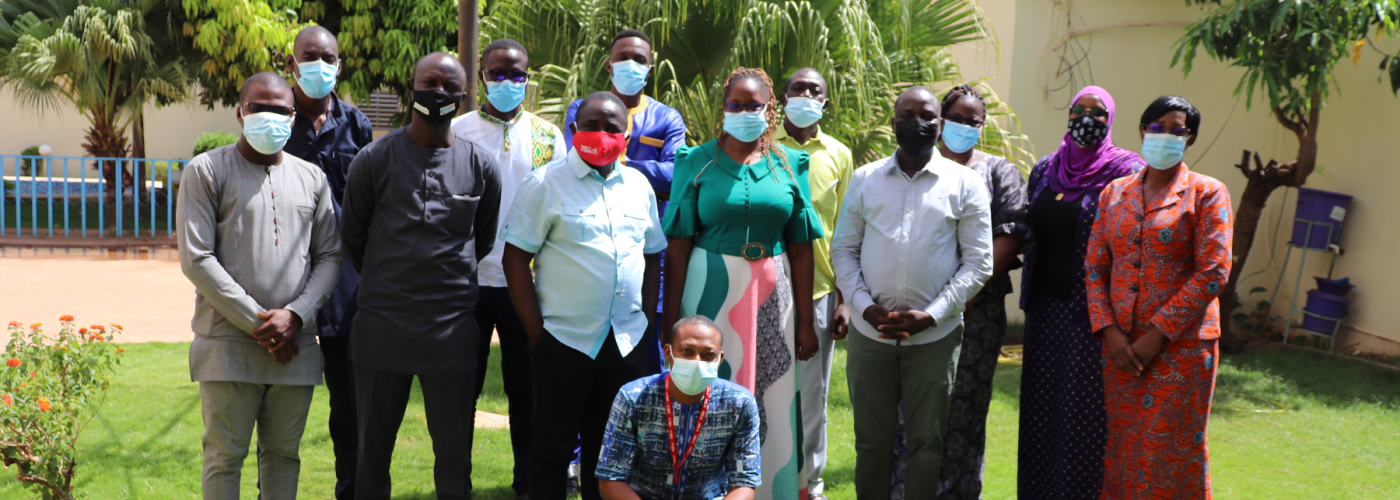Sahel Digital Working Group Lays Groundwork for Future Collaboration
Image

By Digital Frontiers Project Staff
The Sahel region’s digital development landscape is characterized by rapid expansion. With new implementing partners, technology companies, and community-based organizations incorporating digital development components into their work, there is a real risk of unintentional duplication and waste. To increase the efficacy and coordination of its digital programming in Niger, Burkina Faso, and neighboring nations, USAID, through the Digital Frontiers project, established the Sahel Digital Working Group (SDWG).
“I conceived of the Digital Working Group after a digital assessment was done several years ago that identified gaps in our digital programming and identified risks of overlap programming,” said Sait Mboob, Private Enterprise Officer in USAID’s Sahel Regional Office. In August 2019, USAID/Senegal’s Digital Assessment for Food Security and Resilience in Burkina Faso and Niger found that USAID is investing increasing amounts of resources in digital tools across the Sahel but lacked a coordination mechanism for integrating the digital development principles and following the USAID Digital Strategy.
“West Africa is the fastest growing region when it comes to digital,” said Mboob. The SDWG was set up to maximize the impact of digital interventions, ensure the sharing of digital development best practices and lessons learned, and build the technical expertise of USAID’s partners.
In 2021, Rabiatou Moussa, the Digital Development and Strategy Consultant for the SDWG, held informational meetings in Niger and Burkina Faso to introduce implementing partners to the working group idea and to compile a map of digital initiatives in each country. “There are many digital initiatives, and sometimes the implementing partners are going to duplicate some activities or just start some activities and not be able to finish them,” Moussa explained. “That’s a lot of time and resources and is not great for the overall achievement of our development goals. So, the idea [of the SDWG] is to help them define some collaboration activities that they can work on together.”
In early 2022, chapters of the SDWG were officially launched with 15 working group members in Burkina Faso and 17 in Niger. Tankary Soumana Issoufou, a Policy Reform Support Officer at the USAID Sahel Human Voice in Governance (SHIGA) Project in Niger, said the collaboration has proved invaluable for awareness-raising and knowledge-sharing. “Since the SDWG is a framework for collaboration and experience sharing on digital issues, we learned a lot about what other implementing partners are doing in their respective projects in general but also more specifically about the different digital initiatives they have each developed,” Issoufou said.
Viamo, a global social enterprise that specializes in mobile engagement and ICT for development, also found the SDWG useful for connecting with others and promoting their 3-2-1 service, an interactive voice response system designed to deliver critical information via mobile phone. “We're trying to inform all the development partners—and not only within USAID—about our existence so that [we] can coordinate,” said François Laureys, Country Director for Viamo in Burkina Faso. Viamo wants to forge partnerships in the SDWG to help share implementing partners’ existing key messaging and digital infrastructure. “I think this digital working group is an extra channel we can use to coordinate… We would like the partners or the other members to know that they can come to us if they need help with data collection in another way via smartphones or tablets or if they need to do short campaigns,” Laureys said.
The SDWG goes a step beyond serving as a venue for collaboration. “The other aspect is continued capacity-building,” explained Mboob. “The digital development principles are really important to me and really important to us here in the Sahel and to USAID writ large in ensuring that when people are building digital systems, they are thinking from day one about things like user-focused design and doing no harm and privacy concerns… I wanted to ensure that all of our implementing partners have the tools they need to succeed in digital work.”
The SDWG has already begun workshops on digital capacity building and development principles. A recent workshop on GIS mapping for the SDWG led by Tulane University was particularly in demand. “One of the areas where people are very interested is in these geospatial tools, and there are a number of groups doing mapping in the Sahel... If you're trying to look at how projects work together, you need to know if they're located near each other first,” said Nathan Morrow, an associate research professor in the International Health and Sustainable Development Department at Tulane.
“All of this will undoubtedly contribute… to the harmonization of existing digital efforts and also to ensuring the coherence of current and future digital interventions of USAID-funded projects,” commented Issoufou. “What we would like to see the SDWG do in the future,” Issoufou continued, “is to first sustain what has been done so far under this working group in terms of digital experience sharing and then put a little more emphasis on capacity-building of its members on new information technologies.” A number of members are eager for more capacity-building workshops in the months and years to come and feel hopeful about multi-stakeholder collaborations in the future.
“The most striking thing [about working with the SDWG] was that so many people were approaching things in the same way, maybe with a different software, but they could really learn from each other…” Morrow said. “Everyone I've talked to who has been in the digital working group just said the energy was amazing because people really showed up to share real interventions, their real experiences.”
After leading the SDWG for its first year, Moussa reflected: “We are one family of implementing partners, so it's important to share our success. Then we can also share the ownership of that success.” The SDWG will be sustained through incorporation into the Sahel Collaboration and Communication (SCC) activity, a USAID-funded project implemented by Mercy Corps whose goal is to increase coordination between implementing partners across the region.

